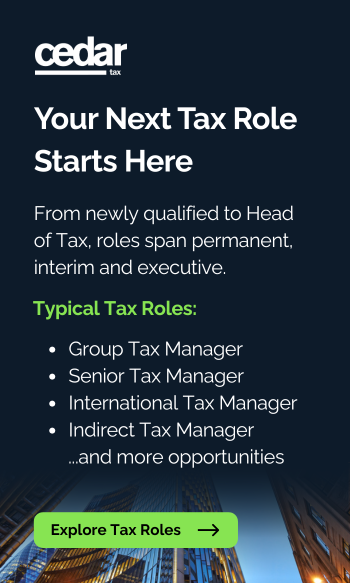Tax Professionals' Guide to relocating to Bahrain
Background
The Kingdom of Bahrain is an Arab constitutional monarchy with a population of 1.3 million, of whom around 700,000 are Bahraini national. Since the late 20th century Bahrain has invested in the banking and tourism sectors and many large financial institutions now have a presence in the capital, Manama.
Bahrain does not share a land boundary with another country and has a rather fabulous 160 km coastline. About 92% of the land is desert. The country has mild winters and very hot and humid summers. Natural resources include fishing and large quantities of both oil and gas.
The official language is Arabic but English is used widely, especially in professional services.
Employers
The Big 4 are present in Bahrain and all have an office in Manama employing tax professionals. There are also a few tax boutiques that have offices in Bahrain. The country is very popular with expats and they represent more than 50% of the population.
Working in Bahrain
If you are relocating to Bahrain to work, then you will need a Visa, unless you already hold a Gulf Cooperation Council (GCC) passport. The immigration process starts with your employer, who acts as your sponsor and sends your invitation to stay. Family members and any dependants can also apply for a residency permit or Family Visa, which will allow them to stay in Bahrain for the duration of the assignment but will not allow them the right to work.
The working week, in common with most of the Middle East, is Sunday to Thursday.
Women's right in Bahrain took a big step forward in 2002 when women were granted the right to vote and stand in national elections for the first time.
Taxation
There is no personal income tax (PIT) regime in Bahrain. However, individuals employed by a natural person or a legal entity or an enterprise in the Kingdom of Bahrain are subject to contributions to the Social Insurance Organisation (SIO) rules in Bahrain.
The current rate of contributions to the SIO is 19% for local employees (12% employer; 7% employee) and 4% for expatriate employees (3% employer; 1% employee).
These contributions to the SIO are to be withheld by the employer and remitted to SIO on a monthly basis.
Source: http://taxsummaries.pwc.com/ID/Bahrain-Individual-Other-taxes
In 2018 Bahrain, along with other Middle Eastern countries, will introduce VAT under the Unified GCC VAT framework. The date has been set as early October. This has inevitably lead to an increase in demand for tax professionals in the country.
Transport
In terms of public transportation, the two most popular means of transport are bus and taxi. Bahrain has a bus service which covers 32 routes and has 141 buses running daily. More information regarding this can be found on the Ministry of Transport website. There are over 1,200 taxis operating in the country and they are used by many to get around. The taxis should all have a meter and specific rates, and ensure this is the case before using one in the country. Bahrain International Airport is a short car journey from Manama and is considered a major air traffic hub in the Middle East. The Bahrain Airport Modernisation Programme will further expand the airport’s infrastructure and cargo handling capacity and is set to increase capacity by 65% from 8 to 14 million passengers per annum.
Accommodation
Expats tend to stay in purpose built compounds which are close to where they work or where their children go to school. These hold many benefits including on site gyms, added security and receptions as well as easing the culture change for people coming from the West. Finding accommodation is rather straightforward, and expats tend to receive help and support from their employer.
The most popular expat areas to live are Manama, Adliya, Amwaj Islands and Saar. All of these areas have a wide variety of accommodation options on offer. Due to the population being 52% expats, there are a lot of community groups where you can meet other people in a similar situation. Facebook groups such as Bahrain Expats Q&A and Bahrain Expat both offer the opportunity to get in touch with other expats before moving to the country. This would allow you to establish connections, gain valuable advice and get answers to any questions you may have.
Schooling
There are a number of International schools across Bahrain. A full list can be found on the Expat Arrivals website as well as the curriculae each school follows. The most popular international schools are the British School of Bahrain, St. Christopher’s School and the Naseem International School. Attending an international school allows children to gain international qualifications such as the Baccalaureate and makes the transition across countries slightly easier. Places in these schools fill up quickly, therefore it is recommended that organising schooling is a priority before arriving in Bahrain.
Health
Bahrain’s healthcare system has improved over the last few years. Expats will have the choice of either public or private healthcare. There are numerous state-funded hospitals, maternity hospitals, as well as private medical facilities and clinics across the country. Standards are similar to that of a bigger country as the government aims to build up Bahrain as a centre of excellence.
This post has been kindly written by tax recruitment specialists Kingpin International, who publish a series of lifestyle news on living and working in GCC countries.












